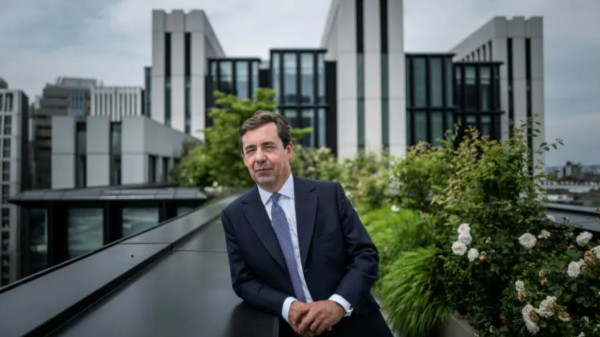

Speaking at the NextWealth Live event this week (March 22), Peter Harrison said while automated advice in its current state is still “a long way off”, there’s more the industry can do to push for legislation which allows for greater innovation.
The Schroders chief reckons tokenisation, which is when real assets are converted into digital tokens, will help transform the UK savings market alongside a more accomplished form of automated advice.
“We need to find more ways to explore with regulators to get more creative innovation into the UK. I think part of that will be achieved through tokenisation."
Harrison told FTAdviser last year that whether it’s tokenisation or digital client engagement, "you’ve got to get a great tech stack to do that".
“If you stood back and said: ‘What would this [tokenisation] look like?’ I do think automated advice will play a bigger part," Harrison said at the event.
“But it’s still the subject of a lot of articles and a long, long way off. There’s a lot more we can do in helping legislation and allowing people to buy into different sorts of assets in different ways through smart contracts.”
Although Harrison acknowledged the UK is the centre of “much innovation” which is going on, he said “none of that has been captured by UK savers and the direct-to-consumer (D2C) market is the worst manifestation of that”.
At the moment, the consumer end of the market is “nailed down” lower levels of risk and the wholesale market has been “allowed to let rip”, according to the advice investment management boss.
As a result, Harrison reckons polarisation [between the D2C and advised markets] could “throttle innovation”, as right now there is not a two-way conversation happening.
“It’s not surprising that it’s [savings innovation] challenging us,” he said. “Because I think there is a need to stand back and say: ‘Why is everyone doing buy-to-let? Why is everyone doing crypto? Why are we not, as an industry, providing something which is more relevant?’”
He continued: “We've expected people to speak our language. Be that equity, or bonds. That’s not the way the rest of the world speaks. We need to think really hard about what it is their [savers'] values are.”
Harrison questioned whether there should be another dimension to the financial advice industry, one which focuses on what people “feel, believe, and want”. “I think this [dimension] is much much greater than the industry currently allows space for.”
But the Schroders boss was quick to highlight values “isn’t just about the environment”, suggesting it was a much broader term than ‘ESG’, or environmental, social and governance.
In the past, Harrison has said private equity groups’ “raid” on UK plc will continue unless there is a sweeping reform of City rules to lighten the load on public companies.
“There’s a very good reason why five or six PE [private equity] firms are going round and buying everything in the industry,” Harrison said at the event. “They’re making an awful lot of money out of it.”
To solve this buying “raid” and help firms innovate with their own money, Harrison has suggested new regulation which would give investors access to non-quoted opportunities and to less liquid assets such as private equity, private debt, real estate and infrastructure.
ruby.hinchliffe@ft.com



